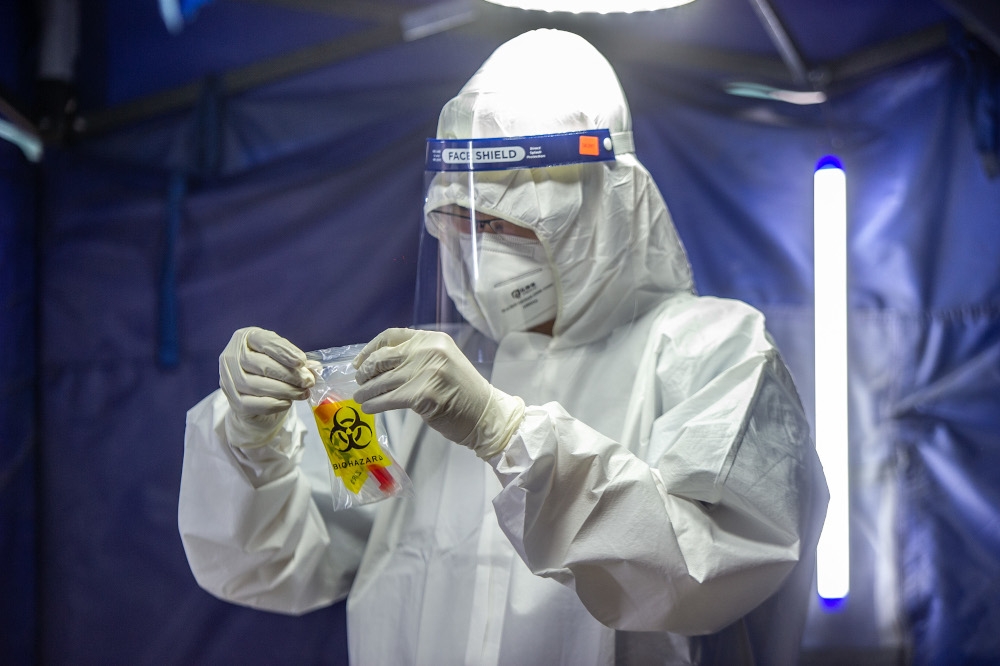KUALA LUMPUR, Jan 8 — The recent Human Metapneumovirus (HMPV) outbreak in China has raised global concerns, echoing memories of the Covid-19 pandemic that brought the world to a standstill a few years ago.
While China and India step up monitoring the situation following the detection of new cases, Malaysia remains on alert for a potential outbreak.
Here’s what we know about the virus so far:
What is HMPV virus?
It is a virus that causes respiratory tract infections.
Belonging to the Pneumoviridae family, it primarily affects the respiratory system, much like several other viruses that commonly affect humans.
Generally, it is a common respiratory virus that causes lower and upper respiratory infections similar to a common cold, flu, or the previous pandemic Covid-19.
Is it a new virus?
No, it is not.
HMPV was first discovered in 2001, but studies indicated that the virus has been circulating in humans for at least 50 years.
However, it has gained increased attention recently due to the resurgence in infections and heightened global focus on respiratory illnesses following the Covid-19 pandemic.

Is HMPV similar to Covid-19?
While both HMPV and the virus that causes Covid-19 are respiratory viruses, they come from different virus families.
They share some similarities, such as causing respiratory illnesses, but differ in their genetic makeup, transmission dynamics, and some clinical manifestations.
Scientifically, HMPV belongs to the Pneumoviridae family, while SARS-CoV-2 — that caused Covid-19 — is a member of the Coronaviridae family.
This fundamental difference affects their structure, imitation methods, and how they interact with the immune system.
Despite that, both viruses are transmitted via respiratory droplets when an infected person coughs, sneezes, or talks.
What are the symptoms?
Symptoms of HMPV infection include cough, fever, nasal congestion, and shortness of breath.
It often resembles other respiratory infections, making it challenging to distinguish without specific tests.

How do you cure HMPV?
Currently, no vaccine is specifically approved for HMPV.
Treatment for HMPV is generally supportive, focusing on relieving symptoms as the body fights off the virus.
This might include rest, fluids, and medications to relieve pain or fever.
Severe cases, particularly in vulnerable populations, typically require more intensive medical care before the symptoms lead to other complications.
To prevent from contracting HPMV:
- Practise good hygiene
- Wash hands frequently
- Reduce contact with infected individuals
These steps are similar to those recommended for preventing other respiratory infections like common cold, flu, or yes — even Covid-19.
Has there been HMPV cases in Malaysia?
Yes, Malaysia has reported cases of HMPV in the past.
According to the Health Ministry, there were 327 cases of HMPV infections detected in 2024, an increase from 225 cases recorded in 2023.
The ministry said in a statement that while HMPV is not a new disease, it does not require mandatory reporting under current infectious disease laws.
It said the public must remain vigilant as respiratory tract infections will continue to persist in the community.
“The increase in acute respiratory infections at the end of the year and the beginning of the next is an expected phenomenon, consistent with similar trends reported in other countries, especially those experiencing colder seasons such as China.
“As a measure to prevent and control the spread of infections, the ministry is constantly monitoring the situation, both domestically and internationally,” the ministry said in a recent statement.
The ministry also encouraged individuals experiencing prolonged or worsening symptoms to seek medical attention immediately.



















